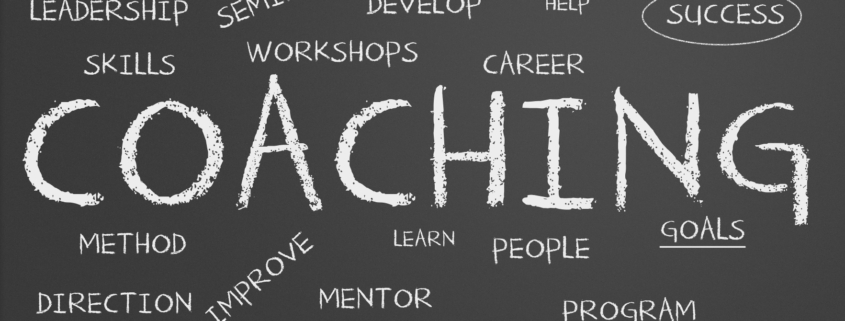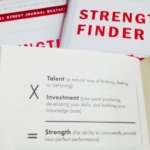Let Executive Coaching Strengthen Your Leadership
Everywhere professionals are turning to executive coaches—whether they’re looking to hit the ground running with a new leadership position, reinvigorate a struggling career, or drive changes in their business. As a training tool, executive coaching helps leaders succeed through personal behavior-oriented guidance and one-on-one attention. They provide tools and sustainability tips to help change bad habits and build new, more productive ones.
If you or your company is considering or currently using executive coaching, here’s what you should know to maximize this valuable tool and strengthen your company’s leadership team.
WHAT COACHING IS – AND WHAT IT ISN’T
Many people believe coaching and consulting are interchangeable, but there are important differences. Consultants will come in to analyze a situation and tell clients what to do in order to solve the problems. A coach’s role is more personal and direct—executive coaches are just that… coaches who support and enable their clients to analyze themselves and their working styles, and draw their own transformational conclusions about how to solve problems. Most consultants create recommendations and conclusions without really looking within the individual. Coaches train, push, mentor and help their clients transform themselves with direct, authentic “no nonsense” counsel.
However, a coach is not a miracle worker. People need to want to transform. There needs to be a desire to change habits and performance. So, avoid enlisting an executive coach in a last-ditch attempt to save a member of your leadership team who has serious performance issues and does not know it or want to know it. These leaders will often resist or completely reject coaching, which clearly wastes company resources and drastically reduces the chance of success.
WHO SHOULD BE COACHED?
Typically, HR reviews the available budget for executive coaching and decides which leaders should receive coaching. The majority of executive coaching clients, according to the International Coach Federation, are between 36 and 45 years old and hold a post-graduate degree. Additionally, 65 percent of coaching clients are female, and the top three reasons among all clients for seeking coaching are self-confidence, career opportunities, and improving work/life balance.
Coaching is most effective for executives who are:
- Getting ready for a promotion
- Transitioning into a new role
- Providing value but stuck in their growth and development
HOW TO CREATE AN EXECUTIVE COACHING PROGRAM
In order to develop a successful executive coaching program, you need to design a contract that addresses different aspects of the coaching work, including confidentiality, duration, medium, and cost. In addition, you’ll need to decide whether to work with internal coaches, external coaches, or both. The best programs teach you how to create internal coaches and mentors to sustain positive results.
- Confidentiality: Make sure the coach understands what information should be shared with whom, and what should remain confidential. For example, feedback gathered from colleagues, co-workers, and stakeholders about the coaching candidate should be kept confidential to facilitate honesty—but the development plan based on that feedback should be shared with the providers.
- Duration: The length of the coaching engagement can vary, depending on the objectives, but in general most executive coaching goals can be reached through bi-monthly meetings over six to nine months.
- Medium: Coaches and clients may meet in person, or communicate via phone, email, or video calls. The majority of coaches prefer to work face-to-face, but many will supplement with phone or video calls when in-person meetings are difficult to arrange.
- Cost: The average rate for executive coaching is $350 per hour, with a range of $200, to $3,000 an hour. While this can represent a costly investment, coaching is often a good value compared to other leadership development options—particularly since the process develops relationships with ongoing support.
- Internal vs. external coaching: There are benefits and drawbacks to each side of this debate. Internal coaches are typically less expensive, and have a more thorough understanding of a particular company’s industry, culture, and operation. However, confidentiality can be difficult to maintain with an internal arrangement, and senior executives often prefer working with an external coach rather than revealing their vulnerabilities to someone within the organization.
EXECUTIVE COACHING PITFALLS
While coaching can be a highly effective tool for leadership development, watch for these pitfalls to ensure an effective program.
Finding the right fit: First and foremost make sure the coach is a fit for your organization. Their personality must match the success-driven results you seek. For example, if you are looking for sales help, make sure you get a coach that understands how to sell.
Failure to prioritize: “Busy” and “executive” are practically synonymous. Especially for emerging leaders, executives may not realize the value of making time for coaching—and if they don’t prioritize the coaching process, they won’t gain the benefits.
Over-reliance: On the flip side, some executives may come to depend on their coaches for too much—or you may see a higher demand rate for coaching than your budget allows. When assigning executive coaching, be sure it’s the right solution for a given situation.
Giving the wrong impression: If your organization has used remedial coaching in the past, your executives may feel their positions are in jeopardy if they’re approached about receiving coaching. Make it clear that you’re providing executive coaching as a tool for personal growth, not as a “test” that executives must pass if they want to keep their jobs.
READY FOR COACHING?
When implemented strategically, an executive coaching program will deliver a high return on investment, resulting in permanent “habit” changes for your leadership team and a strengthened organization.
At launchbox, we have our own brand of coaching – it’s direct, in-your-face and focused on achieving bold results. Ready to get started?


